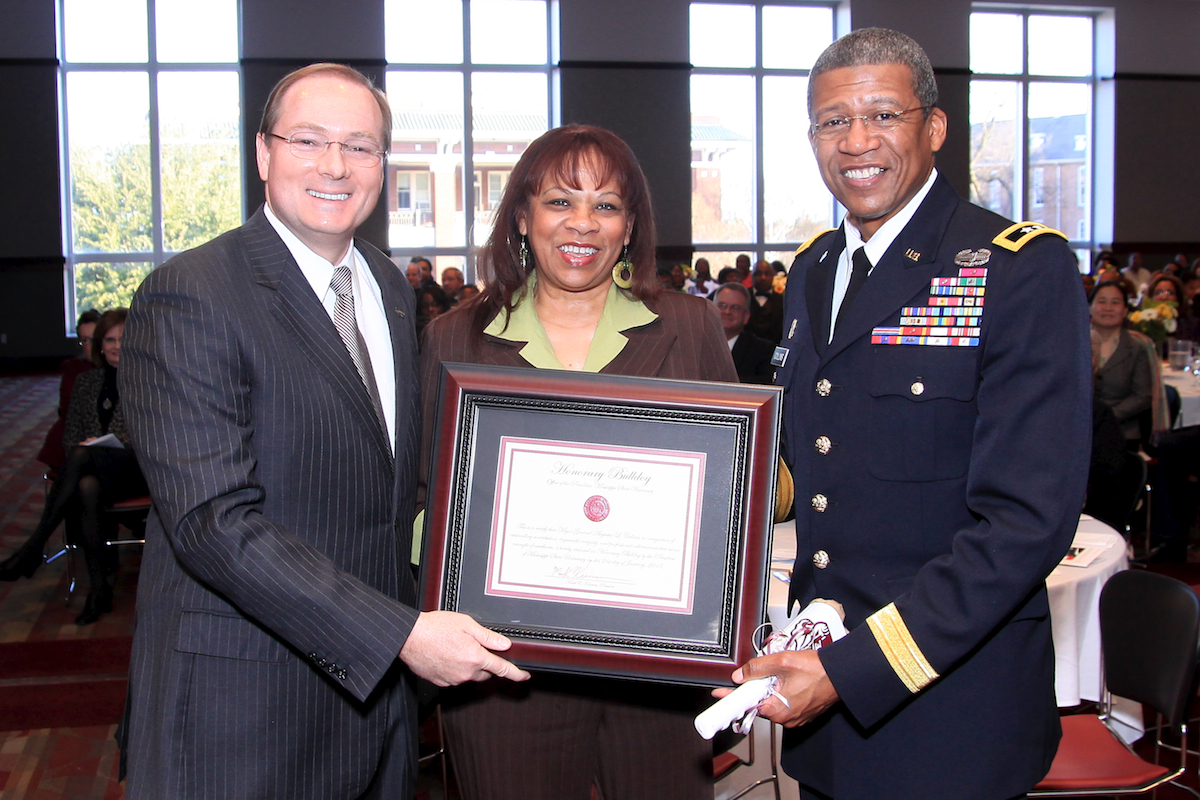Contact: Leah Barbour

Photo by: Leilani Salter
When he went to Officer Candidate School, he was the only African-American in his class, and that in great measure gave Mississippi Adjutant Gen. Augustus L. Collins the determination to succeed.
When he was appointed in early 2012 to the top position in Mississippi's National Guard, he told a reporter that being an African-American from a hard-working family fostered that determination.
Collins, the featured speaker at Mississippi State University's community Martin Luther King Jr. Day Unity breakfast, has been a pioneer in breaking barriers for blacks in the Magnolia State -- he was the first African-American Mississippi National Guard general and the first African-American to be named state adjutant general.
The general said that King's dream has borne great fruit in a half-century of dynamic change in America, but that civil rights leader's dream "is not complete."
"A dream has three parts and Dr. King certainly gave us his dream," said Collins. "The second part is the initial work that sets the dream in motion. Finally, there is the follow-up to make sure the dream is still viable. If not, the dream will die."
Education and hard work have been the cornerstones of his highly decorated career, he explained. Collins praised MSU's work along with Alcorn State University in training Mississippi National Guard troops serving in Afghanistan in nation-building agricultural skills.
Noting that he remembered King's life and work as that of a "bridge builder," Collins challenged the large crowd gathered for the event: "Will you be a bridge builder?"
In addition to Collins's speech, MSU President Mark E. Keenum, offered remarks on the importance of recognizing King's life and impact.
"Dr. King didn't just have a dream, he had a vision," said Keenum. "Today, we note with pride that Mississippi State is the most diverse historically white land grant institution in the nation."
Keenum stressed that from the "game of change" in 1963 when the all-white MSU basketball team played an integrated Loyola team in the NCAA tournament, to the university's peaceful integration just two years later with its first black student Richard Holmes, MSU students, staff and teachers have valued and embraced diversity and inclusion.
Even though the basketball team lost that historic game, the university broke the segregation barrier then, and the MSU family followed suit. Holmes would later become a university physician and the namesake for Holmes Cultural Diversity Center, and MSU has become the most diverse university in the Southeastern Conference.
"Diversity and inclusion matter," said Keenum. "Mississippi State values the legacy of Dr. Martin Luther King and seeks to build on that legacy not one day a year, but every day."
As the community celebration closed, MSU's Black Voices Gospel Choir performed several freedom-inspired selections, and Rev. Tyrone Stallings of New Zion United Methodist Church gave the benediction.
Hundreds of people attended the long-running community event, sponsored both by the city and university for close to 20 years.
For more information about MSU, visit http://www.msstate.edu.